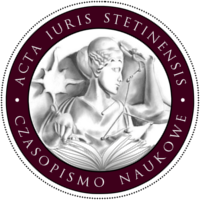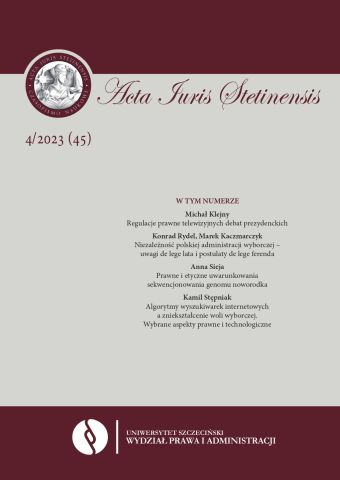






| Authors: |
Paweł
Zawadzki

Uniwersytet w Białymstoku |
| Keywords: | Constitutional law tripartition of powers ordinary courts Minister of Justice supreme administrative supervision |
| Data publikacji całości: | 2023-12 |
| Page range: | 11 (113-123) |
| Downloads ?: | 68 |
| 1. | Bosek L., Safjan M. (eds.), Konstytucja RP. Tom I. Komentarz do art. 1–86, 2016, Vol. 1. |
| 2. | Bosek L., Safjan M. (eds.), Konstytucja RP. Tom II. Komentarz do art. 87–243, 2016, Vol. 1. |
| 3. | Dawidowicz W., Polskie prawo administracyjne, Warszawa 1978. |
| 4. | Dolnicki B., Nadzór nad samorządem terytorialnym, Katowice 1993. |
| 5. | Lisowski P., Relacje strukturalne w polskim samorządzie terytorialnym, Wrocław 2013. |
| 6. | Szewczyk M., Nadzór w materialnym prawie administracyjnym: Administracja wobec wolności i innych praw podmiotowych jednostki, Poznań 1995. |
| 7. | Szewczyk M., Nadzór jako instytucja materialnego prawa administracyjnego, “Państwo i Prawo” 1997. |
| 8. | Zimmermann J., Prawo administracyjne, Warszawa 2018. |
| 9. | Vile M.J.C., Constitutionalism and the Separation of Powers, Indianapolis 1998. |